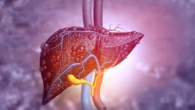
Deficiency of this vitamin increases the risk of hypertension
0
High blood pressure is very common. Taking timely measures is of paramount importance to prevent serious complications in the future. Exercise and diet can partially reduce high blood pressure, but evidence suggests that underlying deficiencies may also play a role.
Vitamin D deficiency is well known for its association with bone disease and respiratory tract, but the data also highlight a presumed correlation between vitamin D deficiency and high blood pressure.
“Whether this relationship is causal in the general population is not yet known,” the Centers for Disease Control and Prevention notes. of Diseases (CDC).
The longer it goes untreated, the higher the risk of heart attack and stroke, which explains why hypertension is often called the “silent killer.''
“Because of the opposing effects of various reviews of the role of vitamin D in preventing or treating hypertension, it appears that vitamin D levels in the body indirectly affect blood pressure. We suggest that doctors monitor their patients' vitamin D levels regularly to stop the ever-increasing incidence of hypertension.”
Research consistently confirms that vitamin D deficiency is a global problem. This nutrient is called the sunshine vitamin because it is produced in the skin when exposed to sunlight.
As winter approaches, levels can drop lower than ever, so getting nutrients from food is a must. Good sources are fatty fish, egg yolks, red meat and some fortified foods. It is possible to take supplements on the recommendation of a doctor.









Leave a Reply